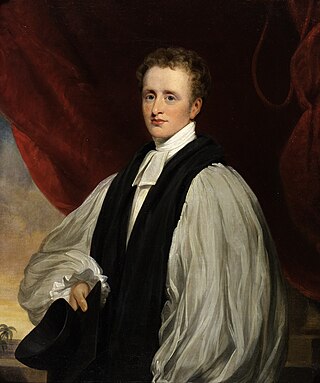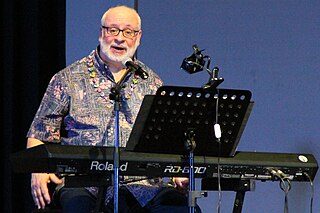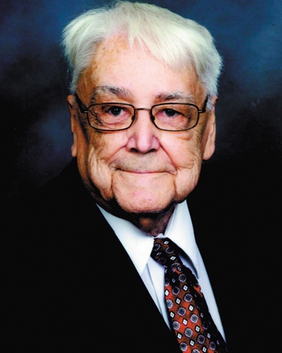Related Research Articles

"Love Divine, All Loves Excelling" is a Christian hymn by Charles Wesley on Christian perfection. Judging by general repute, it is among Wesley's finest: "justly famous and beloved, better known than almost any other hymn of Charles Wesley." Judging by its distribution, it is also among his most successful: by the end of the 19th century, it is found in 15 of the 17 hymn books consulted by the authors of Lyric Studies. On a larger scale, it is found almost universally in general collections of the past century, including not only Methodist and Anglican hymn books and commercial and ecumenical collections, but also hymnals published by Reformed, Presbyterian, Baptist, Brethren, Seventh-day Adventist, Lutheran, Congregationalist, Pentecostal, and Roman Catholic traditions, among others including the Churches of Christ. Specifically, it appears in 1,328 of the North American hymnals indexed by the online Dictionary of North American Hymnology, comparable to Newton's "Amazing Grace" (1,036), Wesley's "O for a Thousand Tongues" (1,249), and Watts' "When I Survey the Wondrous Cross" (1,483), though still well short of Toplady's "Rock of Ages" (2,139) or Wesley's own "Jesu, Lover of my Soul" (2,164).
The Lutheran Book of Worship (LBW) is a worship book and hymnal published in 1978 and was authorized for use by several Lutheran denominations in North America, including predecessors of the Evangelical Lutheran Church in America and Evangelical Lutheran Church in Canada. The Lutheran Church—Missouri Synod was initially involved in the hymnal's development but officially withdrew.
Decisions concerning the conduct of public worship in the Church of Scotland are entirely at the discretion of the parish minister. As a result, a wide variety of musical resources are used. However, at various times in its history, the General Assembly has commissioned volumes of psalms and hymns for use by congregations.
The New Century Hymnal is a comprehensive hymnal and worship book published in 1995 for the United Church of Christ. The hymnal contains a wide-variety of traditional Christian hymns and worship songs, many contemporary hymns and songs, and a substantial selection of "world music" selections origin, a full lectionary-based Psalter, service music selections, and a selection of liturgies from the UCC Book of Worship (1986). Generally speaking, the hymnal is theologically within the mainline Protestant tradition, with a slant toward liturgical forms.
Marty Haugen is an American composer of liturgical music.

The Baptist Hymnal is has been since 1956 the primary book of hymns and songs used for Christian worship in churches affiliated with the United States denomination, the Southern Baptist Convention. For information on Baptist hymnals in a more general sense, see this list
Jan Michael Joncas is a Catholic priest of the Archdiocese of Saint Paul and Minneapolis, liturgical theologian, and composer of contemporary Catholic music best known for his hymn "On Eagle's Wings".

"Holy, Holy, Holy! Lord God Almighty!" is a Christian hymn written by the Anglican bishop Reginald Heber (1783–1826).

David Robert Haas is an American author and composer of contemporary Catholic liturgical music. In 2020, dozens of women accused him of sexual misconduct spanning several decades, and he issued a public apology for harmful behavior.

Evangelical Lutheran Worship (ELW) is the current primary liturgical and worship guidebook and hymnal for use in the Evangelical Lutheran Church in America and the Evangelical Lutheran Church in Canada, replacing its predecessor, the Lutheran Book of Worship (LBW) of 1978, and its supplements, Hymnal Supplement 1991 and With One Voice (WOV).
Donald Paul Hustad was a recognized leader in evangelical church music for six decades. Although he was an esteemed musician, composer, and teacher, Hustad's richest legacy resides in his informed criticism of evangelical church music and his well-developed philosophy of worship communicated through lectures, articles, and books.
John A. Dalles is a clergyman and hymnwriter who was born in Pittsburgh, Pennsylvania, United States. A graduate of Penn State, Lancaster Theological Seminary and Pittsburgh Theological Seminary, he is an ordained minister in the Presbyterian Church (U.S.A.). Having served the First Presbyterian Church of South Bend, Indiana and the Fox Chapel Presbyterian Church, from 1997 until 2019 he served as Senior Pastor of Wekiva Presbyterian Church in Longwood, Florida. Following his 22-year senior pastorate at Wekiva, he was the Interim Senior Minister and Head of Staff of the Shadyside Presbyterian Church, in Pittsburgh, 2019-2021.

Richard Hillert (1923-2010) was a noted Lutheran composer. He was Distinguished Professor of Music Emeritus at Concordia University Chicago, River Forest, Ill. He was best known for his work as a composer and teacher of composition. Among his most frequently performed liturgical works for congregation is Worthy Is Christ, with its antiphon, “This is the Feast of Victory” which was written as an alternate Song of Praise for inclusion in Setting One of the Holy Communion in Lutheran Book of Worship (1978) and Lutheran Worship (1982). "This is the Feast" is now widely published in more than 20 recent worship books of many denominations, most recently in Lutheran Service Book (2006) and Evangelical Lutheran Worship (2006). Other major liturgical works include a setting of Evening Prayer (1984) and a Eucharistic Festival Liturgy (1983), which was first performed at Holy Name Cathedral in Chicago. He wrote liturgical pieces and hymns and served as music editor for Worship Supplement (1969) and Lutheran Book of Worship (1978). His compositions and publications include an array of pieces of liturgical music for congregation, choral motets, hymns and hymn anthems, psalm settings and organ works, concertatos, and cantatas, including settings of The Christmas Story According to Saint Luke and The Passion According to Saint John. He edited eleven volumes of the Concordia Hymn Prelude Series.

Lutheran Worship (LW) is one of the official hymnals of The Lutheran Church–Missouri Synod (LCMS). Published in 1982 by Concordia Publishing House in St. Louis, Missouri, it is the denomination's third English-language hymnal and was intended to replace The Lutheran Hymnal (TLH). Additional hymns and service music are contained in the companion, Hymnal Supplement 98.
"Jaya Ho" is a Christian hymn written in the Hindi language by an unknown author. The song's Hindi title, more frequently transliterated "Jai ho" in other contexts, means "may there be victory" and is frequently used interjectively to praise God. The hymn's English title is often given as "Victory Hymn" or "Victory Be to You [i.e., God]".
Brian A. Wren is an internationally published hymn-poet and writer. Wren's hymns appear in hymnals of all Christian traditions and have been influential in raising the awareness of theology in hymns. Brian Wren is married to Rev. Susan M. Heafield, a United Methodist pastor.
Jann Aldredge-Clanton is an ordained Christian minister, author, teacher, and chaplain, who leads workshops and conferences throughout the United States. She has authored eleven books, six songbooks, a children's musical, and a children's songbook. She has also published many articles in publications such as Christian Feminism Today, The Journal of Pastoral Care, The Christian Ministry, and Patheos. She specializes in feminist theology and inclusive worship resources.
Hymnody in continental Europe developed from early liturgical music, especially Gregorian chant. Music became more complicated as embellishments and variations were added, along with influences from secular music. Although vernacular leisen and vernacular or mixed-language carols were sung in the Middle Ages, more vernacular hymnody emerged during the Protestant Reformation, although ecclesiastical Latin continued to be used after the Reformation. Since then, developments have shifted between isorhythmic, homorhythmic, and more rounded musical forms with some lilting. Theological underpinnings influenced the narrative point of view used, with Pietism especially encouraging the use of the first person singular. In the last several centuries, many songs from Evangelicalism have been translated from English into German.
Elizabeth Joyce Smith is an Australian Anglican priest and hymnist. She has published three collections of hymns, and several of her hymns have been included in the ecumenical hymnal Together in Song. Ordained a deacon in the Anglican Church in Australia in 1987, Smith became a priest in 1993. She earned a PhD from the Pacific School of Religion, where she focused on feminist hermeneutics and liturgical studies. Her doctoral thesis was published in 1999, with the title Bearing Fruit in Due Season: Feminist Hermeneutics and the Bible in Worship. She has served on the Liturgy Commission for the Anglican Church of Australia since 1997. In 2018, she was commissioned to write a hymn for the installation of Archbishop Kay Goldsworthy. In 2020, she was appointed a Member of the Order of Australia for her contributions to liturgical scholarship and to the Anglican Church of Australia.
References
- 1 2 Robin, Knowles (2016). "Ruth C. Duck: Expanding Our Horizons of Liturgical Language". In Vogel, Dwight W. (ed.). Primary Sources of Liturgical Theology. Liturgical Press. pp. 285–85.
- 1 2 3 4 "A Vibrant Seminary for Future Generations: 2016-2017 President's Annual Report | Garrett-Evangelical Theological Seminary". www.garrett.edu. Retrieved 2018-05-21.
- 1 2 3 4 "ruthduckhymnist". ruthduckhymnist. Retrieved 2018-05-21.
- 1 2 3 4 5 Ruth, Duck (2010). "Ruth Duck". In Wootton, Janet (ed.). This is Our Song: Women's Hymn-Writing. London. pp. 263–275. ISBN 978-0716206552. OCLC 441152500.
{{cite book}}: CS1 maint: location missing publisher (link) - 1 2 3 4 5 6 Brauninger, Dallas (Dee) A. (2006). "Ruth C. Duck - Birth of a Hymn/Nacimiento de in himno". www.ucc.org. Antoinette Brown Women: Finding Voice. Retrieved 2018-05-21.
- 1 2 "GIA Publications - Artist - Ruth Duck". www.giamusic.com. Retrieved 2018-05-21.
- 1 2 "Ruth C. Duck". The Canterbury Dictionary of Hymnology. Canterbury Press. Retrieved 2018-05-21.[ dead link ]
- 1 2 3 "Ruth C. Duck Honored as Fellow by Hymn Society | Garrett-Evangelical Theological Seminary". www.garrett.edu. Retrieved 2018-05-21.
- 1 2 "Ruth C. Duck » A People's History of the School of Theology | Boston University". www.bu.edu. Retrieved 2018-05-21.
- ↑ Duck, Ruth C. (2005). Welcome God's tomorrow : 38 hymn texts. Southwestern at Memphis. Alumni as authors. Chicago: GIA Publications. ISBN 1579995497. OCLC 68184975.
- ↑ "The Hymn Society". The Hymn Society. Retrieved 2018-05-21.